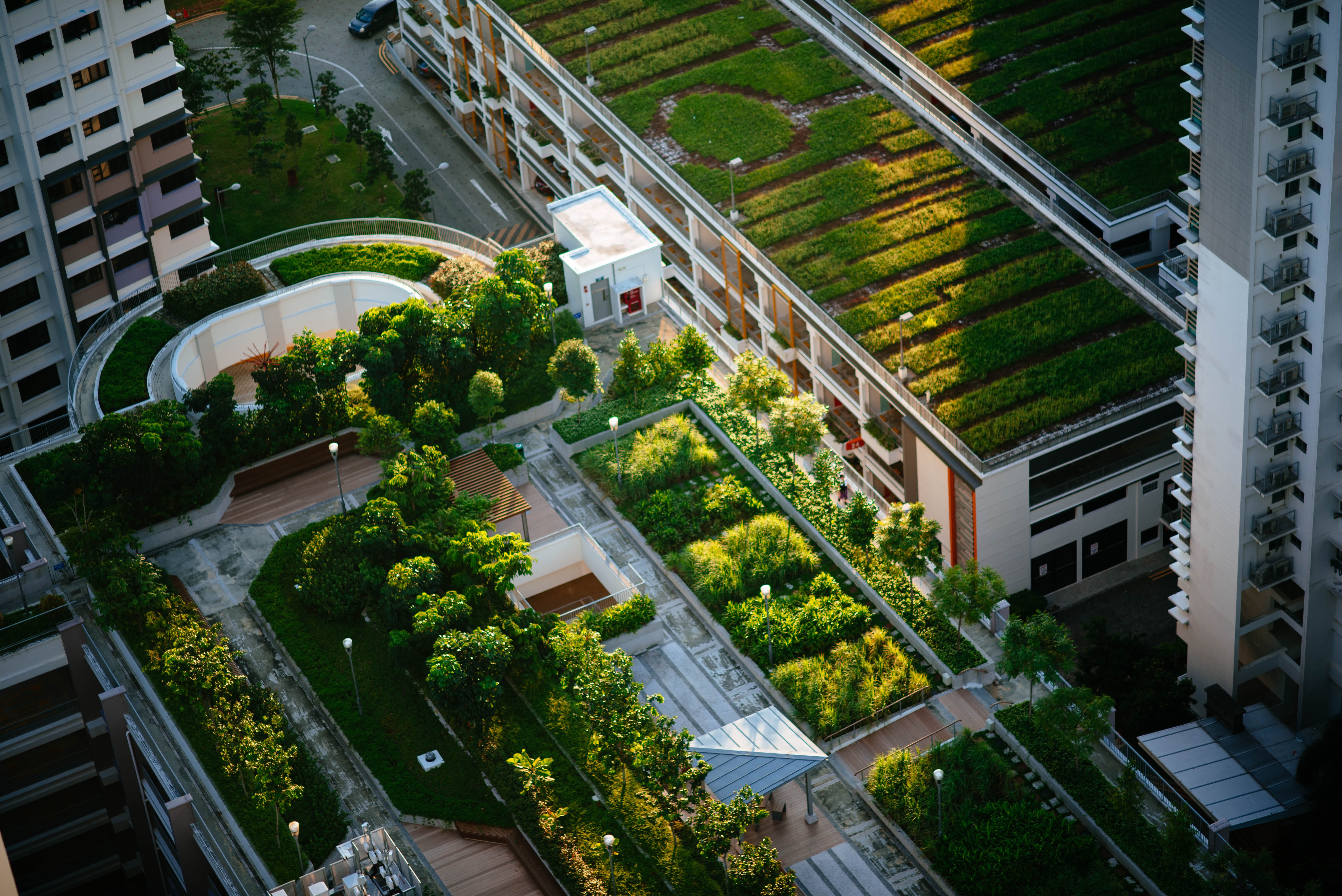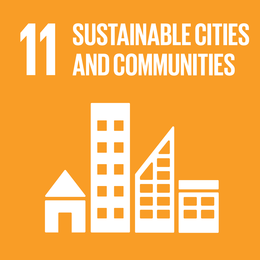SDG # 11 - Make cities and human settlements inclusive, safe, resilient and sustainable.
Imagine if...
Imagine if...

Make cities and human settlements inclusive, safe, resilient and sustainable.
More than half of us live in cities. By 2050, two-thirds of all humanity—6.5 billion people—will be urban. Sustainable development cannot be achieved without significantly transforming the way we build and manage our urban spaces.
The rapid growth of cities—a result of rising populations and increasing migration—has led to a boom in...
The common current across creating jobs, housing, infrastructure, transportation, and health access has to be sustainability. Making cities sustainable means creating career and business opportunities, ensuring safe and affordable housing, and building resilient societies and economies. It involves investment in public transport, creating green public spaces, and improving urban planning and management in participatory and inclusive ways.
The Marshall Legacy Institute (MLI) is a 501(c)3 non-profit organization founded in 1997 to alleviate suffering and promote hope, growth, and stability in war-torn countries. MLI emphasizes the importance of helping countries help themselves and implements the following Mine Action and Social Impact programs: 1) provision of valuable resources and training to hasten the pace of landmine clearance operations; 2) provision of medical assistance & vocational training to landmine survivors; 3) linking of American youth with students abroad to work together to help others; 4) supporting interethnic reconciliation by connecting children from different ethnic/religious groups and uniting them in a common cause; and 5) promotion of economic empowerment for women living in war-torn countries.
Grassroots International works in partnership with social movements to create a just and sustainable world by advancing the human rights to land, water, and food through global grantmaking, building solidarity across organizations and movements, and advocacy in the US. We partner, fund, and work in solidarity with movements and organizations around the world in order to nurture sustainable and equitable relationships between people, with the earth, and all its living systems. Our mission is to connect people in the US with global movements that defend land, territory, water, food, seeds, and the earth. Together, we address the root causes of injustice and oppression, and build alternatives that nurture human rights, ecological justice, and liberation.
Founded in 1982, World Resources Institute (WRI) is a global research organization that spans more than 60 countries, with offices in Brazil, China, India, Indonesia, Mexico, and the United States; regional hubs in Ethiopia, the Netherlands and program offices in Istanbul, Kinshasa, and London. WRI's mission is to move human society to live in ways that protect Earth's environment and its capacity to provide for the needs and aspirations of current and future generations. WRI's more than 750 experts and staff work closely with leaders to turn big ideas into action at the nexus of environment, economic opportunity, and human well-being. Our work focuses on 6 critical issues at the intersection of environment and development: climate, energy, food, forests, water, and cities and transport.
FareStart transforms lives, disrupts poverty and nourishes communities through food, life skills and job training, with the goal of every individual having the opportunity to thrive in an equitable and just world. FareStart has been helping people transform their lives through food for nearly 30 years — one person, one job and one community at a time. People in poverty struggle to escape the cycle they are in and often face other compounding barriers to getting and keeping a job. At FareStart, we help people overcome those barriers by teaching them work and life skills they need to succeed in the foodservice industry — and in life. Through our restaurants, cafes, catering and programs that provide meals to social services, shelters and schools in the Seattle area, participants in our programs get practical work experience while giving back to their community. In 2011, FareStart launched a national initiative, Catalyst Kitchens, in order to share our unique model with nonprofit organizations across North America.
Pure Earth’s mission is to develop and implement solutions for pollution-related problems in the developing world, focusing on the world's worst polluted places where women and children are most vulnerable. Toxic pollutants at contaminated sites affect the health of more than 200 million people worldwide. Women and children are especially at risk suffering neurologic and immune system damage and an early death. (The number of people affected is comparable to HIV/AIDS, TB and malaria. Yet pollution is one of the most underreported and underfunded problems in the world.) The majority of acutely toxic sites are caused by local business, many of them artisanal or small-scale. Abandoned sites are also quite common. Surprisingly, international companies are rarely implicated. Pure Earth has addressed toxic pollution in over 120 project locations through assessment, remediation, risk mitigation and more. These projects have impacted approximately 5 million people—20% of those being children under six. Families in many of these communities will live longer, have less intellectual impairment, cancer and other diseases.
The Sustainable Development Goals (SDGs), also known as the Global Goals, were adopted by all United Nations Member States in 2015 as a universal call to action to end poverty, protect the planet, and ensure that all people enjoy peace and prosperity by 2030. The 17 SDGs are interconnected and integrated, and reaching these goals requires balancing...

Stage 1
Become a founding donor
Stage 2
Help build support
Stage 3
Join the final push
 SDG 10 - Reduced Inequalities
SDG 10 - Reduced Inequalities SDG 15 - Life on Land
SDG 15 - Life on Land SDG 3 - Good Health and Wellbeing
SDG 3 - Good Health and Wellbeing SDG 8 - Decent Work and Economic Growth
SDG 8 - Decent Work and Economic Growth SDG 9 - Industry, Innovation, and Infrastructure
SDG 9 - Industry, Innovation, and Infrastructure SDG 17 - Partnership for the Goals
SDG 17 - Partnership for the Goals Climate
Climate SDG 16 - Peace, Justice, and Strong Institutions
SDG 16 - Peace, Justice, and Strong Institutions SDG 5 - Gender Equality
SDG 5 - Gender Equality SDG 1 - No More Poverty
SDG 1 - No More Poverty SDG 6 - Clean Water and Sanitation
SDG 6 - Clean Water and Sanitation SDG 4 - Quality Education
SDG 4 - Quality Education SDG 2 - Zero Hunger
SDG 2 - Zero Hunger Bay Area Poverty
Bay Area Poverty SDG 13 - Climate Action
SDG 13 - Climate Action SDG 7 - Affordable and Clean Energy
SDG 7 - Affordable and Clean Energy SDG 12 - Responsible Consumption and Production
SDG 12 - Responsible Consumption and Production SDG 14 - Life Below Water
SDG 14 - Life Below Water Conservation
Conservation New York Poverty
New York Poverty U.S. Education
U.S. Education Global Poverty
Global Poverty